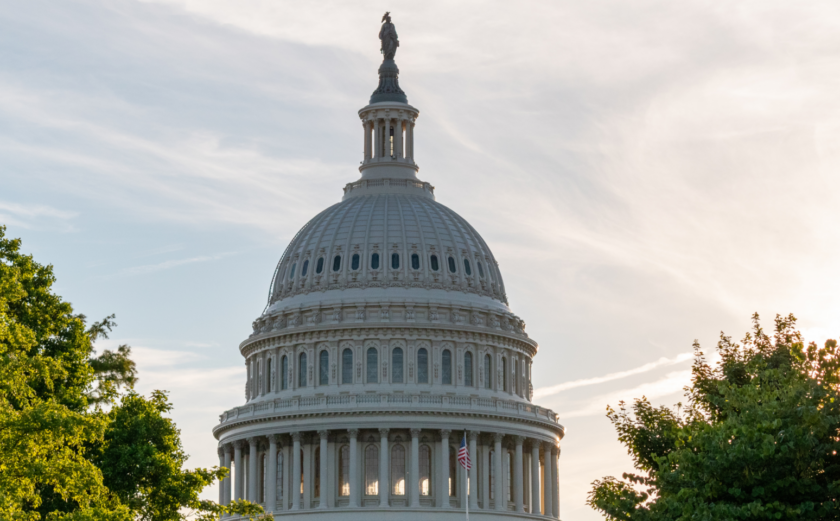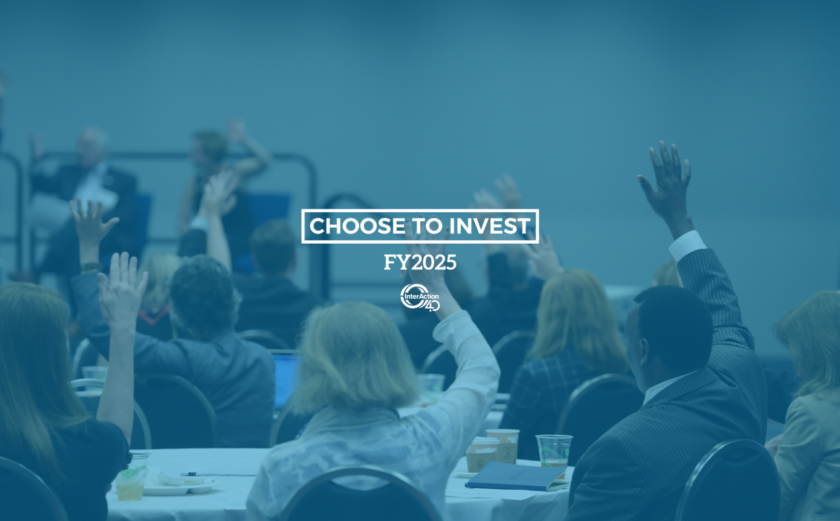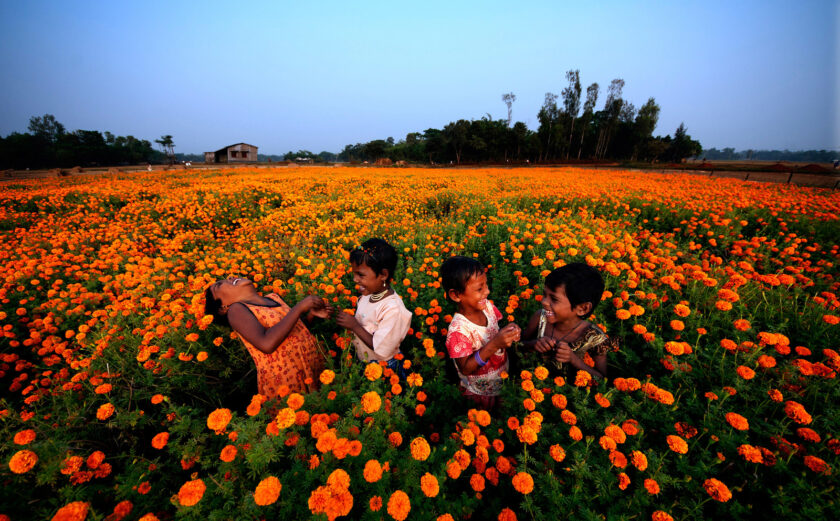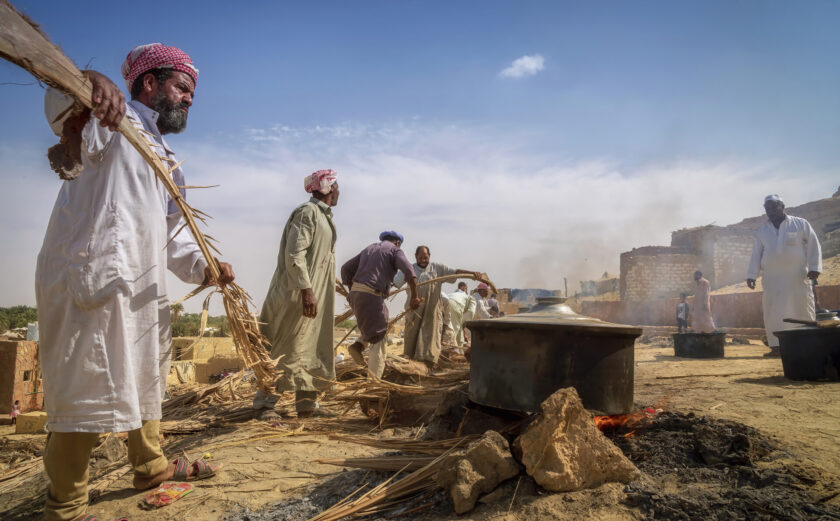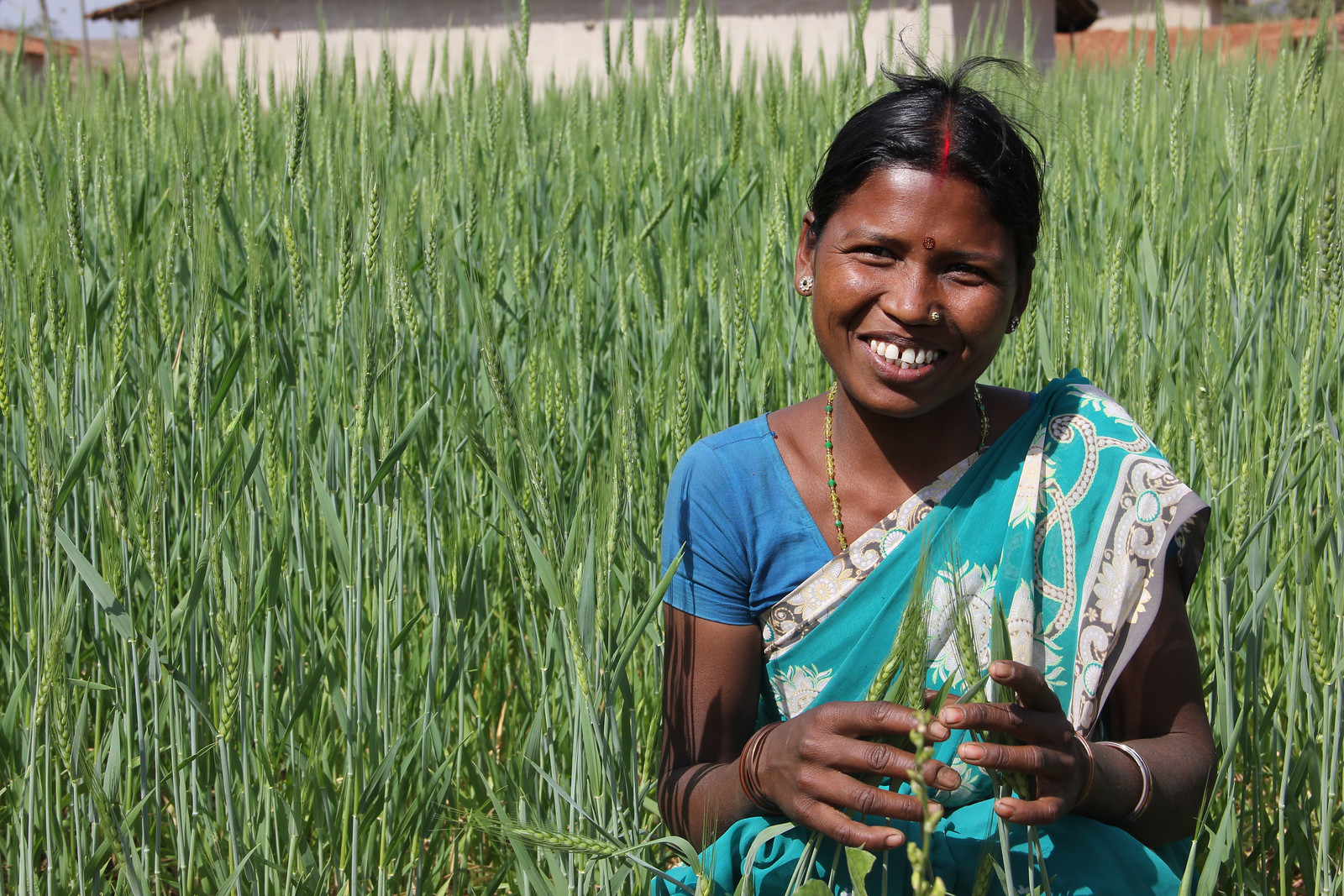
Our Actions Are Our Future
InterAction Celebrates World Food Day and Joins Congressional and NGO Leaders in Honoring 10 Years of Feed the Future
World Food Day 2020 explores how the global community can “Grow, Nourish, Sustain. Together.” This annual day calls on us to promote awareness of—and action for—those who suffer from hunger and malnutrition.
Today, in the face of the COVID-19 pandemic, this theme is more pertinent than ever.
After decades of decline, global hunger has been increasing since 2014. Nearly 2 billion people are still food insecure and do not have regular access to safe, nutritious, and sufficient food due to conflict, climate change, and economic downturns.
The World Food Program projects that, without urgent action, the number of people facing food crises could double by the end of 2020, adding between 83-132 million people to this number. The resulting impacts of COVID-19 will be felt for decades to come.
Just last week, the World Food Program won the Nobel Peace Prize 2020 for its efforts to combat hunger and improve prospects for stability and peace. With their selection, the Nobel Committee wanted to “turn the eyes of the world towards the millions of people who suffer from or face the threat of hunger” and highlight the importance of global cooperation to tackle hunger and instability.
The Nobel Committee’s selection proves that—now more than ever—ending global hunger should be a universal priority. As we look to respond and recover from the pandemic, World Food Day 2020 asks us all to build back a better future with tools, programs, and actions with proven impact.
Our Actions are our Future
Ten years ago, Feed the Future was born out of a global food crisis. Today, the coalition of stakeholders, communities, and countries invested in Feed the Future has the networks, experience, and capacity to adapt and rebuild from today’s challenges.
Feed the Future brings together the expertise and experience of the U.S. government, NGOs, universities, local partners, and civil society organizations to address root causes and build local capacity in communities worldwide to combat hunger, poverty, and undernutrition.
Since the formation of Feed the Future, 23.4 million people now live above the poverty line, 5.2 million more families are no longer suffering from hunger, and 3.4 million children live free from stunting. The network of cooperation across the U.S. government and stakeholders at the foundation of Feed the Future and the increased integration of connected issues—like water, sanitation, and hygiene (WASH), climate, gender, and nutrition—have been critical to these program results.
Last week, Senators Bob Casey (D-PA) and Jim Risch (R-ID) and Reps. Betty McCollum (D-MN) and Chris Smith (R-NJ) introduced joint Congressional Resolutions (S.Res 728 and H.Res 1171) recommitting Congress’ bipartisan support for Feed the Future and pushing for more action. The Resolutions honor Feed the Future’s decade of work and call for continued U.S. investment and support for global food security in the face of the economic and food security impacts of COVID–19.
As we look toward reauthorization of Feed the Future through the Global Food Security Act in 2023, InterAction joins 20 of its Member organizations to support the Resolutions and the goals they lay out to strengthen the next decade of Feed the Future’s impact. The Resolutions call for:
1. Continued investment in Feed the Future and United States global food security programs to reduce hunger, poverty, and malnutrition in low- and middle-income countries.
2. Deepened and extended efforts to tackle food insecurity and achieve the global goal of ending hunger by 2030. This is particularly important in the face of unprecedented challenges posed by the COVID–19 pandemic, increased political and social instability and displacement, gender inequities, more extreme natural shocks, and the increasing prevalence of invasive agricultural pests.
3. Continued emphasis on integrating programming focused on improving nutrition and health, building resilience, integrating WASH, and empowering women, youth, and smallholder farmers.
4. The United States Agency for International Development to—
- annually review the Feed the Future program and, as appropriate, expand the list of target countries, including those in fragile contexts.
- include information on both Feed the Future focus and aligned countries in annual reporting.
- develop a robust multi-sectoral learning agenda for maternal and child malnutrition and its causes, with a focus on the 1,000-day window until a child’s second birthday.
- strongly amplify the critical role of women and smallholder farmers in enhancing food security and catalyzing agriculture-led economic growth.
- advance the New Partnerships Initiative by promoting, building the capacity of, and entering partnerships with locally-led organizations under the Feed the Future program.
5. Continued cooperation of relevant U.S. government agencies identified under the United States Government Global Food Security Strategy to—
- advance global food security as a United States foreign assistance priority, enhance inter-agency coordination under the Global Food Security Strategy, and align relevant programs with the Feed the Future program’s needs-based, multi-sectoral approach.
- update the Global Food Security Strategy and a Global Food Security Research Strategy in 2021.
InterAction applauds Senators Casey and Risch and Representatives McCollum and Smith’s leadership to highlight Feed the Future’s important work and elevate food security and nutrition issues ahead of World Food Day 2020. InterAction’s Food Security, Nutrition, and Agriculture Working Group will continue to work with co-sponsors to educate and inform Feed the Future’s work and the upcoming reauthorization of the Global Food Security Act. Please reach out to Sara Nitz Nolan for more information if you would like to join this effort.
Endorsing InterAction Member organizations of S.Res 728 and H.Res 1171 include:
| 1,000 Days |
| Alliance to End Hunger |
| BRAC USA |
| Bread for the World |
| Cadasta Foundation |
| CARE |
| Congressional Hunger Center |
| Farm Journal Foundation |
| Feed the Children |
| Food for the Hungry |
| Global Communities |
| GOAL Global |
| Helen Keller International |
| InterAction |
| Lutheran World Relief-IMA World Health |
| National Cooperative Business Association CLUSA |
| Oxfam America |
| Save the Children |
| UNICEF USA |
| WFP USA |
| World Vision |
